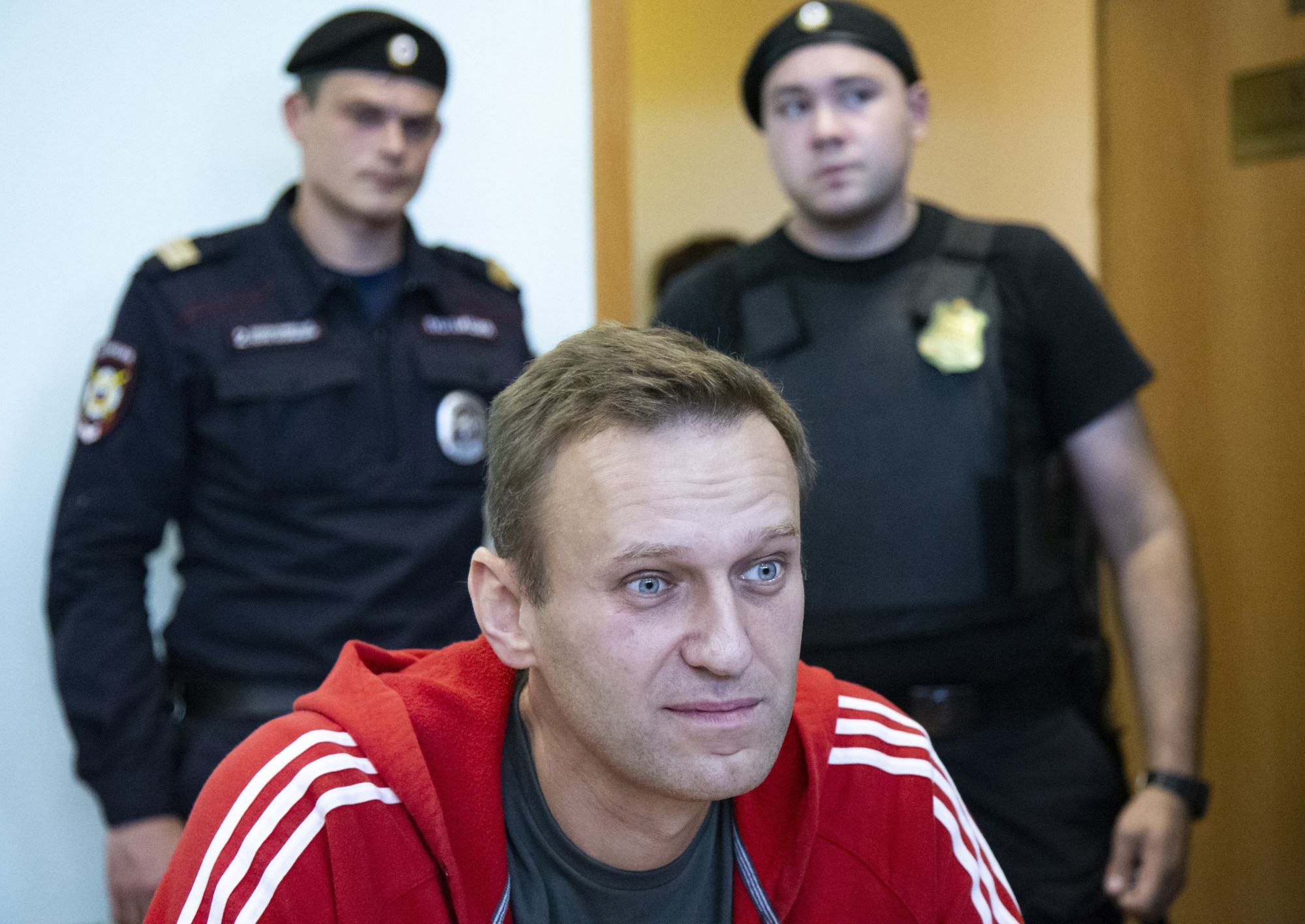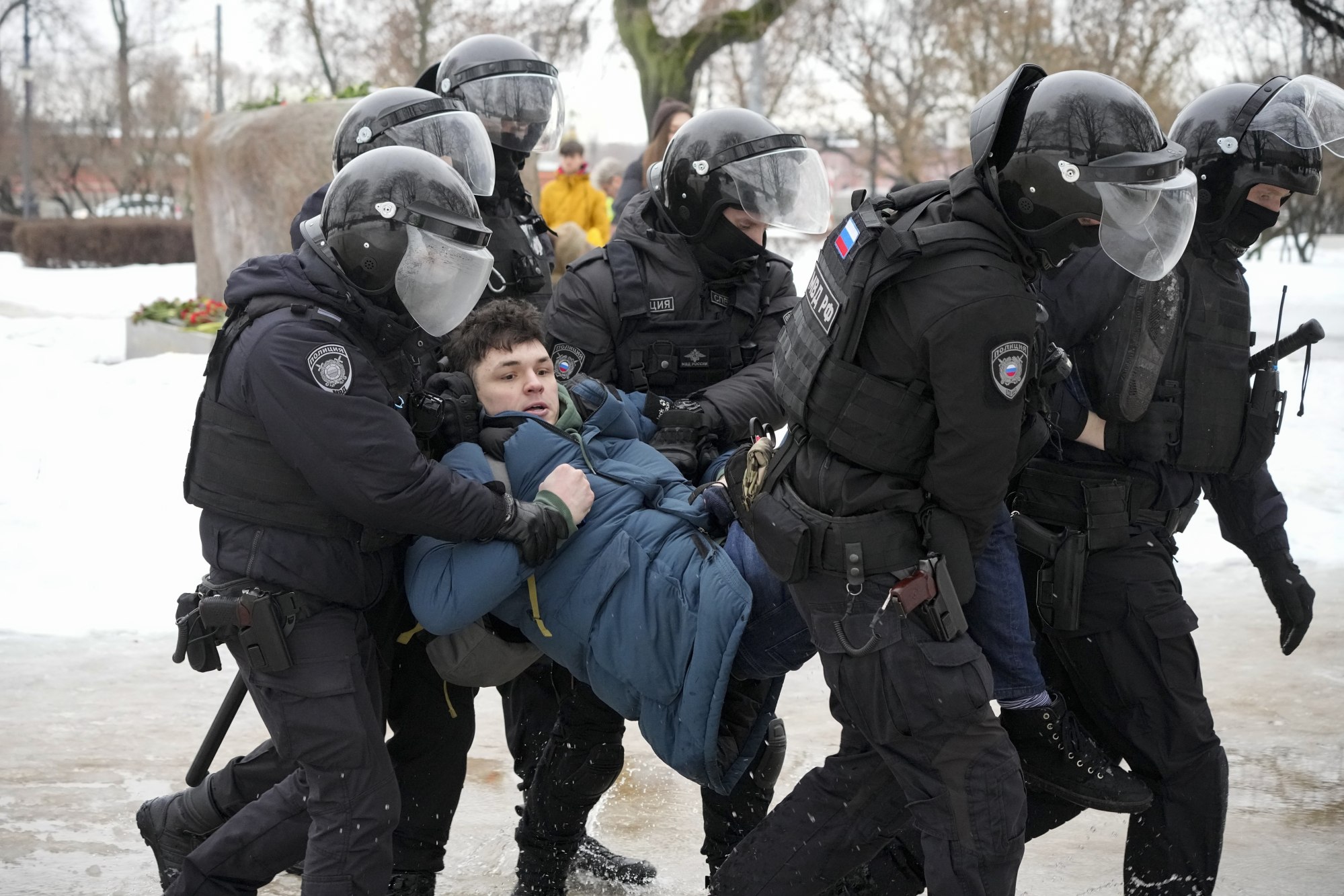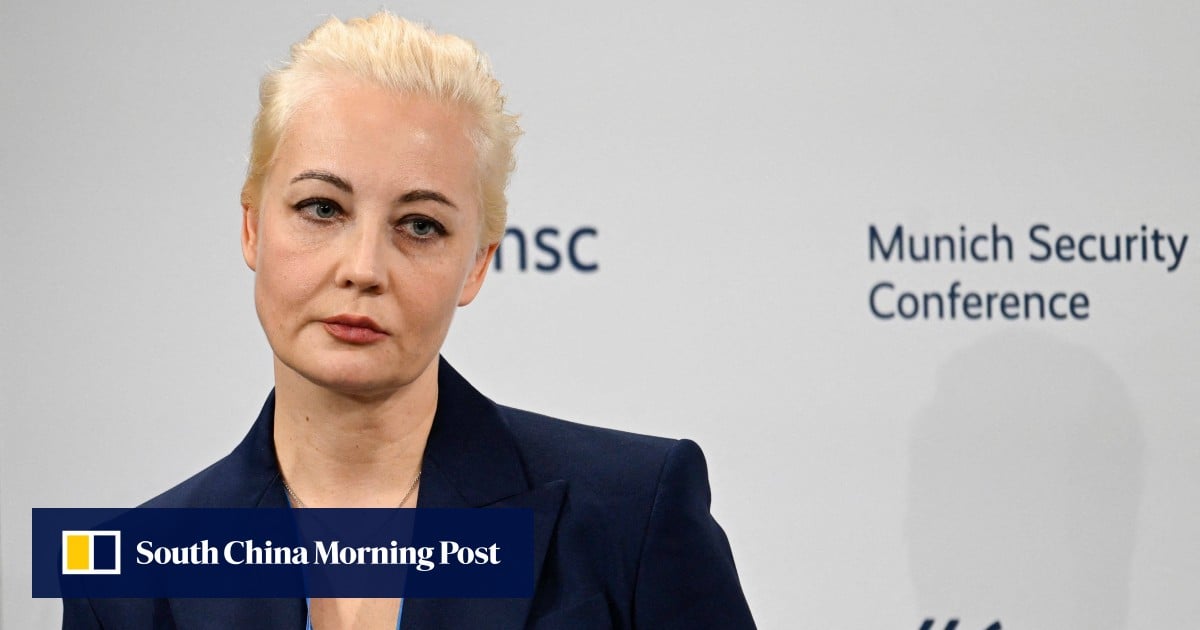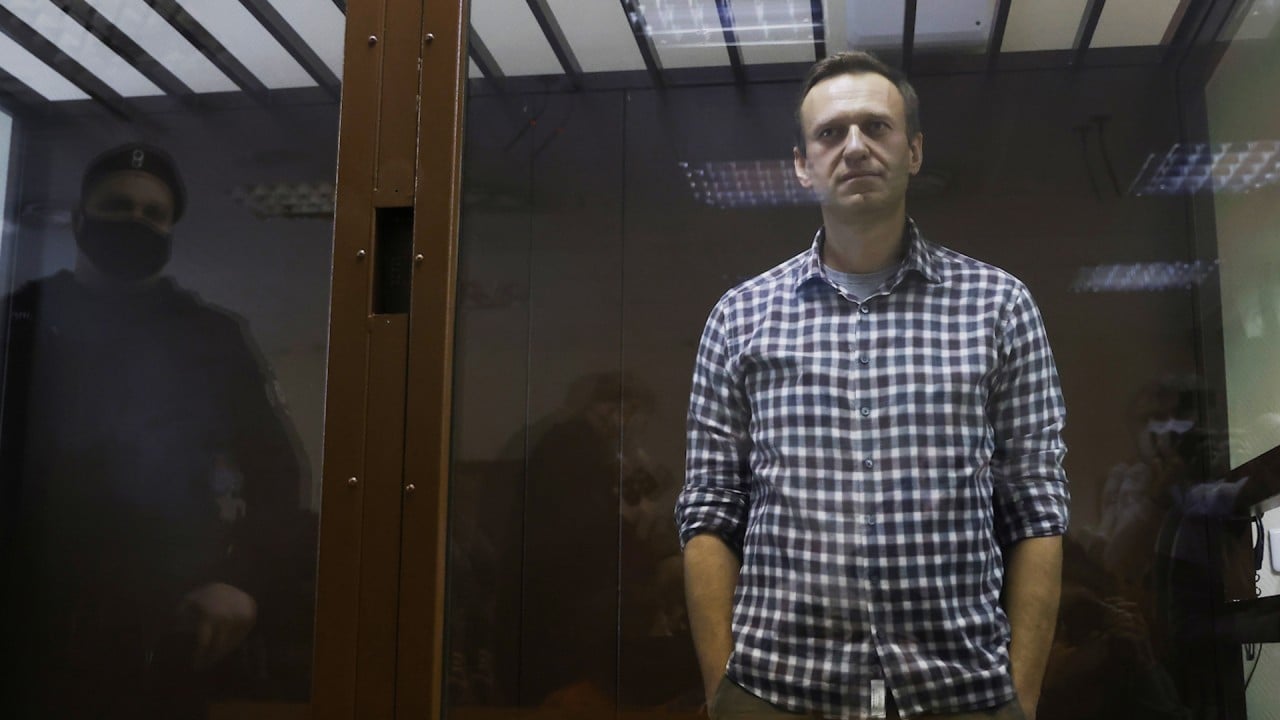Navalny’s widow, Yulia Navalnaya, will meet European foreign ministers in Brussels on Monday, the EU’s foreign policy chief said.
“On Monday, I will welcome Yulia Navalnaya at the EU Foreign Affairs Council,” Josep Borrell said late on Sunday on X, formerly Twitter.
“EU Ministers will send a strong message of support to freedom fighters in Russia” and “honour” Navalny’s memory, he said.

Italy’s Foreign Minister Antonio Tajani said Navalnaya’s “words will help all of us Europeans to understand even better what kind of violent system we have to confront and contain in Ukraine”.
“It will make us feel the threat that weighs on Russian citizens and on every region of our Europe, a continent to which violence, brutality, and war have been shamefully and irresponsibly returned,” Tajani said in a statement.
The 47-year-old Kremlin critic died on Friday at the Arctic prison colony where he was being held on charges widely seen as retribution for his campaigning against Putin.
Russian courts have sentenced dozens of people detained at events commemorating Navalny to short prison sentences, official court announcements showed, with 154 sentenced in Saint Petersburg alone.
Details of rulings published by the city’s court service on Saturday and Sunday showed 154 people had been given prison time of up to 14 days for violating Russia’s strict anti-protest laws.
Rights groups and independent media outlets reported a handful of similar sentences in other cities across the country.
Hundreds detained in Russia at Navalny memorial events, rights group says
Hundreds detained in Russia at Navalny memorial events, rights group says
Police and men in plain clothes patrolled sites in dozens of Russian cities where people had gathered to commemorate Navalny over the weekend.
There were several reports of them removing the pop-up memorials overnight, and footage showed hooded men scooping up flowers into bin bags on a bridge next to the Kremlin where another leading Putin critic, Boris Nemtsov, was killed in 2015.

The news of Navalny’s death, which came just a month before Putin is set to secure another six-year term in the Kremlin, triggered an outpouring of grief and anger among his supporters at home and abroad.
Russian authorities had still not given Navalny’s mother or lawyers access to his body on Sunday, enraging his backers who had earlier called the Russian state “killers” trying to “cover their tracks”.
Putin – who famously never referred to Navalny by name – was on a visit to the Urals on Friday and has not commented on the death of his most vocal critic. The Kremlin has not said anything since Friday evening when spokesman Dmitry Peskov accused Western leaders of “absolutely unacceptable” and “hysterical” reactions to Navalny’s death.
Tributes to Navalny, who narrowly survived a poisoning attack in 2020 only to fly back to Russia months later knowing he would be jailed, continued to pour in on Sunday.
“Alexei Navalny wanted one very simple thing: for his beloved Russia to be just a normal country,” Leonid Volkov, his chief of staff and one of his closest aides wrote on X.
“And for this Vladimir Putin killed him. Poisoned, imprisoned, tortured and killed him.”
Navalny was Russia’s most prominent opposition leader and had a huge following as he campaigned against corruption under Putin.
Navalnaya had stood by her husband as he galvanised mass protests in Russia, flying him out of the country as he lay in a coma after a poisoning and returning to Moscow with him.
She had since clung on to the hope that she would see him again even as he was given 19 years in prison.


